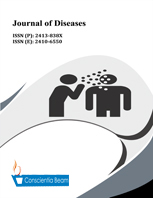Prospects of Molecular Genetics in Sports Medicine
DOI:
https://doi.org/10.18488/journal.99/2016.3.1/99.1.8.15Abstract
During the last two decades, sports medicine is increased and experienced a stage of rapid development, especially in such areas as the study of strength, endurance, sports injuries and psychology. Study of ongoing changes when performing exercises at the cellular and molecular levels led to the development of new areas in the sports science as known as genetic medicine that deals with the genetic basis of athletic phenotype. Around 66 % of the variance in athlete status is explained by genetic factors, the remaining variance is due to other factors such as training, nutrition, equipment, motivation, sleeping and epigenetics. Over the last two decades, at least 155 genetic markers (located in almost all chromosomes and mtDNA) were associated with elite athlete status (93 genetic markers with endurance and 62 markers with power/force). The number of identified genetic markers associated with sports activity, grew at a rate exponentially: in 1997 – 5 genes; in 2000 – 24 genes; in 2004 – 101 genes. During the last 19 years, found that at least 120 of genetic markers associated with elite athlete status (77 genetic markers related to endurance and 43 genetic marker settings capacity/power). Of the polymorphisms associated with sports endurance, the angiotensin-converting enzyme (ACE) and alpha actinin-3 (ACTN3) polymorphisms have been the most frequently studied, and meta-analyses have confirmed the associations. ACTN3 is absent in approximately 18% of European population, 25-29% of Japanese population and overall about 1.5 billion people in all countries. Therefore, to date, available genetic tests based on small sample sizes and the selected analytical methodology can lead to erroneous associations and to reassess the size of the effect, and of course, the use of such limited data does not allow us to predict athletic ability with high accuracy.

